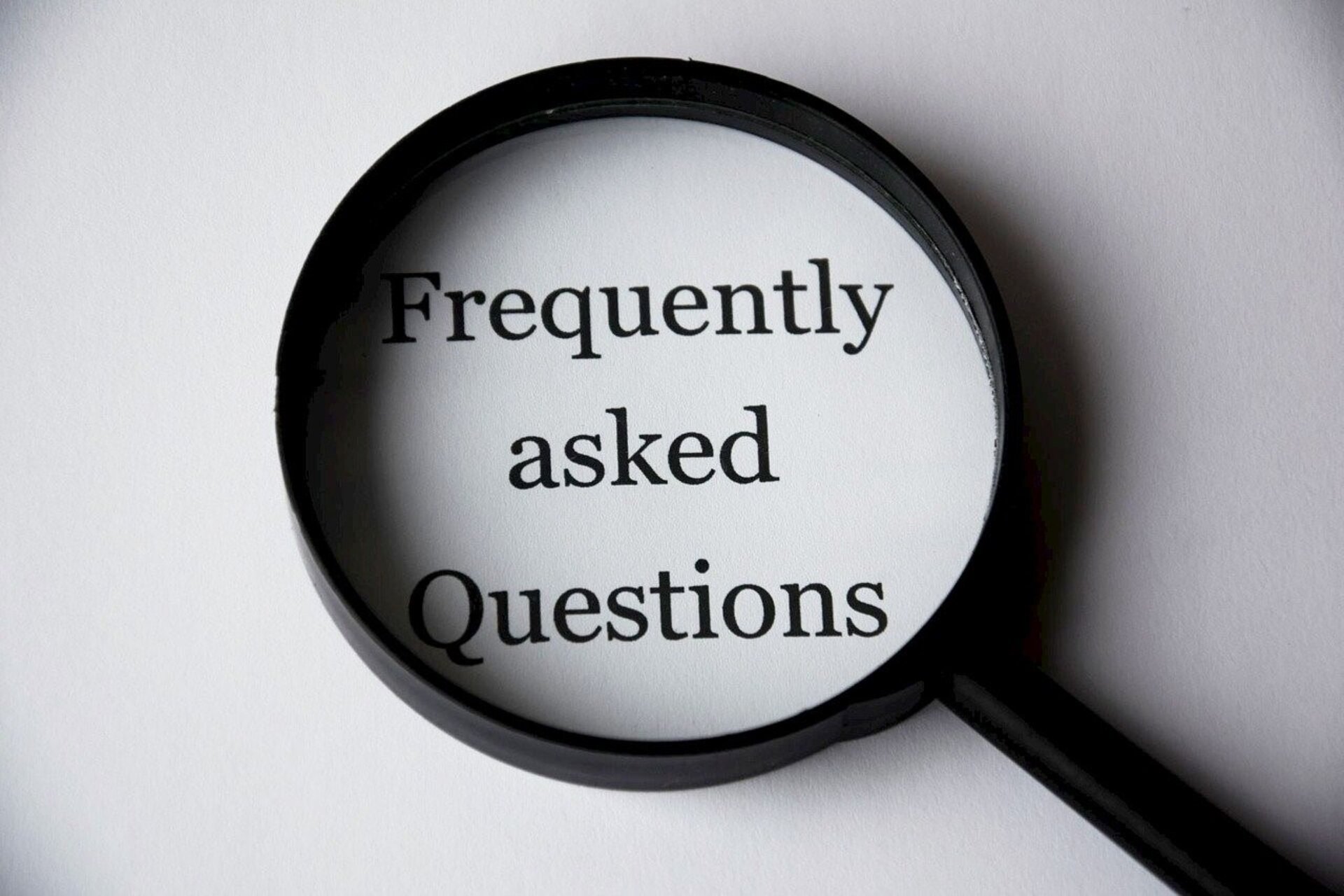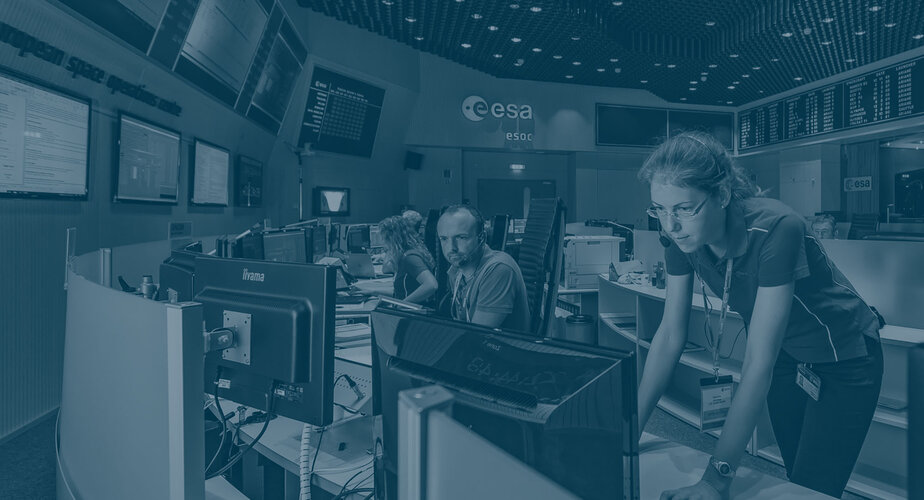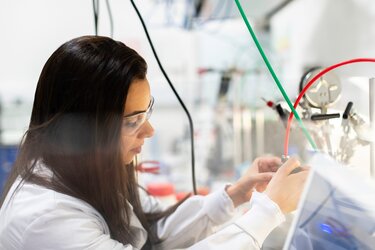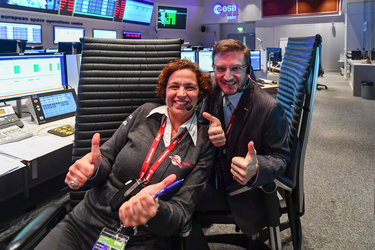Junior Professional Programme: frequently asked questions
Do you have questions about the ESA Junior Professional Programme that have not been answered on our Careers pages? Would you like to find out more about this new programme? Our dedicated FAQ is here to support you.
The Junior Professional Programme
When was the Junior Professional Programme launched?
The Junior Professional Programme is ESA's newest entry-level programme. The first JP vacancies were published in 2021.
Will JPP vacancies be published every year?
Yes, as of 2025 15 JP positions are foreseen to be published each year. Applications for the 2025 selection will open in May.
Who can apply?
To be eligible for the Junior Professional Programme, you must have:
- Graduated from a relevant Master’s degree programme.
- Two to three years of relevant professional experience. If you took part in our entry-level programmes (EGT Programme, National Trainee Programmes and Research Fellowship Programme), the time spent at ESA counts towards the experience requirement.
- Citizenship of one of the ESA Member States, Associate Members or Canada as a Cooperating State. The full list of eligible countries is published in the footer of each ESA vacancy.
How is it different from the ESA Graduate Trainee Programme or National Trainee Programmes?
Like the ESA Graduate Trainee Programme and National Trainee Programme, you need to be a citizen of an ESA Member State, Associate Member State or Canada as a Cooperating State and have a Master’s degree to be eligible to apply for the vacancies.
However, the Junior Professional Programme is different in that it is open to professionals with two to three years of experience. So, you must have accumulated a certain amount of professional experience after completing your Master's degree before applying to a JP position, which is not the case for the EGT Programme or the National Trainee Programmes.
Another key difference is the employment conditions: the Junior Professional Programme offers an ESA staff contract for an initial period of four years, with the perspective of conversion to an indefinite contract upon completion of the programme.
Can I apply to the Junior Professional Programme and EGT Programme at the same time?
The basic requirements in terms of professional experience are not the same (see above). Your level of professional experience will determine which programme you are eligible to apply to.
I was an ESA Graduate Trainee or National Trainee at ESA in recent years. Am I eligible for the Junior Professional Programme?
If you have a total of two to three years of professional experience after your Master, yes! Your time at ESA as a Graduate Trainee or National Trainee is considered as valid professional experience and counts towards the experience requirement.
Does PhD research count towards professional experience?
Yes, experience gained during PhD research/studies counts towards the experience requirement for this programme.
I have more than three years of professional experience. Can I apply to this programme?
If you have more than three years of professional experience, we recommend that you check our ESA staff vacancies here. Set up a job alert to be informed as soon as a vacancy that matches your profile is published.
Is it true that the Junior Professional Programme can lead to a permanent position at ESA?
The ESA Junior Professional Programme has a forward-looking perspective and it is the intention for successful JPs to have a long-term career at ESA. When they are recruited, ESA Junior Professionals will therefore be offered a permanent position with an initial four-year contract. An indefinite contract will be granted at the end of the four years, subject to performance.
What is the rotation scheme and how does it work?
Rotation placements allow you to learn from diverse ESA projects. They can be within the directorate you have been assigned to, a different directorate within ESA or even under a secondment assignment to industry. The rotation scheme depends on factors such as the area of assignment, the activities, your profile, etc.
What is the Flexible Individual Training Plan?
Development is a fundamental element of the JPP. While all JPs participate in courses which are part of a common programme, each JP also receives training tailored to the needs and requirements of their activities at ESA, as well as to their academic and professional profile.
Is there an age limit to apply?
No, there is no age limit to apply. As long as you are a citizen of one of the eligible countries and you have a Master’s degree with two to three years of professional experience, you are eligible to apply to the Junior Professional Programme.
If I am selected for the Junior Professional Programme at ESA, what are the terms and conditions?
Please check our Junior Professional page for more information about the terms and conditions.
Recruitment process
Where can I find the Junior Professional opportunities?
As of 2025, a call for applications for the JPP will be published each year. Once the positions are live, you will be able to browse them directly on our recruitment website by clicking here.
How do I apply?
The vacancies are published here. To apply, you need to create your candidate profile, upload your CV and motivation letter, then submit. Once your application is sent, you will be able to track its status by logging into your candidate profile.
Set up a job alert to stay informed of vacancies at ESA.
Do you ask for a particular CV format (for example, Europass)?
No, you can send us your CV in your preferred format.
Do you have any recommendation for a motivation letter?
Your motivation letter should be clear and concise. We recommend that you keep this letter to just one page (maximum two) and it should detail any experience that could be relevant to the role you are applying for. Be sure to share your enthusiasm, your interests and your motivation for that particular position.
How will I know if I am selected for an interview?
If you are selected for an interview, you will receive an email from a member of our recruiting team. You will be asked to add some documents to your candidate profile, such as a copy of your diploma or passport/ID card prior to the interview. All the applications receive an automatic acknowledgement of receipt. Once you have applied, you will be able to track the status of your application. All candidates, whether they are selected for interview or not, are informed by email about the outcome of their application.
Will the interview take place face-to-face?
ESA interviews take place virtually by Teams. If you are selected for an interview, you will receive all necessary information by email.
I applied to a vacancy but now that it is closed, I can’t find it on my candidate profile. What should I do?
Please write to us at contact.human.resources@esa.int.
More information
Where can I find information about the ESA Graduate Trainee Programme and Research Fellow Programme?
Check our career pages to learn more and for news on these programmes.
I have a question that isn’t answered here. How do I contact the ESA Human Resources Department?
Please contact us at contact.human.resources@esa.int.















 Germany
Germany
 Austria
Austria
 Belgium
Belgium
 Denmark
Denmark
 Spain
Spain
 Estonia
Estonia
 Finland
Finland
 France
France
 Greece
Greece
 Hungary
Hungary
 Ireland
Ireland
 Italy
Italy
 Luxembourg
Luxembourg
 Norway
Norway
 The Netherlands
The Netherlands
 Poland
Poland
 Portugal
Portugal
 Czechia
Czechia
 Romania
Romania
 United Kingdom
United Kingdom
 Slovenia
Slovenia
 Sweden
Sweden
 Switzerland
Switzerland































